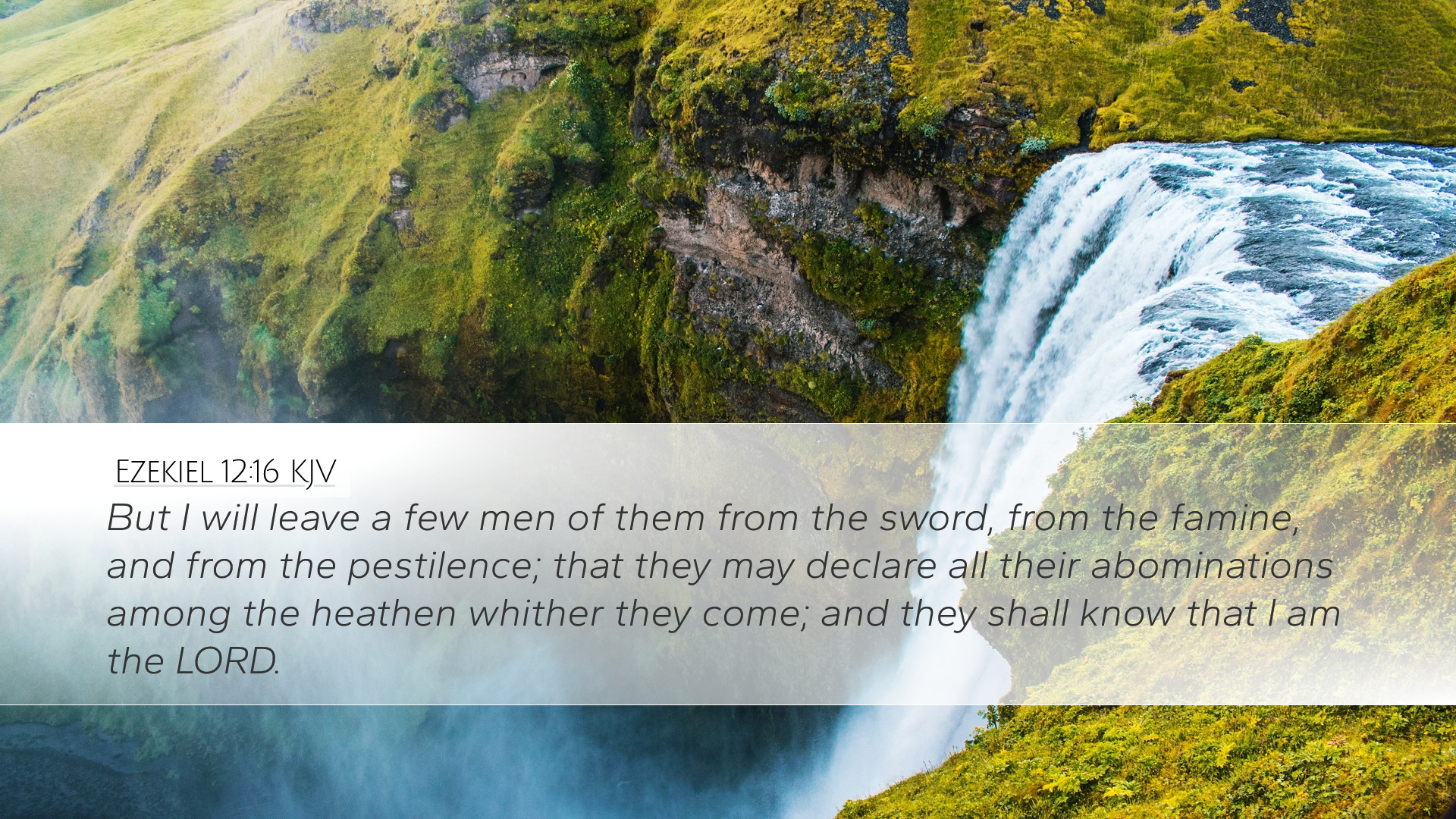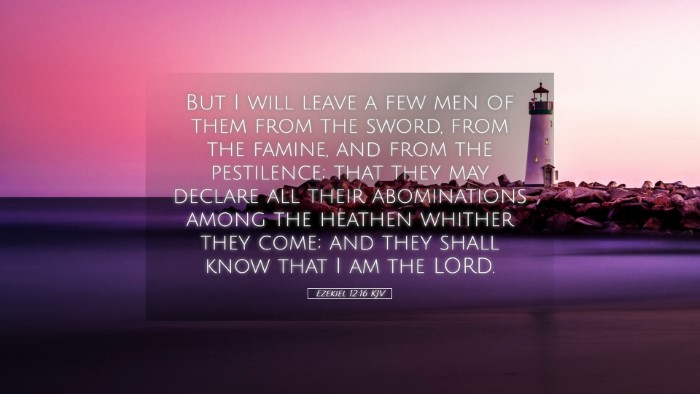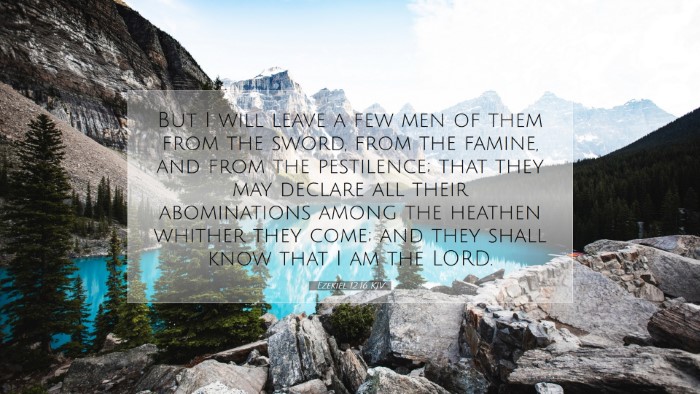Ezekiel 12:16 Commentary
Bible Verse: Ezekiel 12:16 "But I will leave a few men of them from the sword, from famine and from pestilence; that they may declare all their abominations among the heathen whither they shall come; and they shall know that I am the LORD."
Introduction
This verse from Ezekiel emphasizes God’s divine sovereignty even amidst judgment and calamity. The prophet Ezekiel is a significant figure in the Old Testament, known for both his visions and his messages concerning Israel's judgment and restoration. In understanding this verse, we draw insights from various public domain commentaries to glean deeper theological and pastoral implications for our lives today.
Contextual Background
The book of Ezekiel was written during a tumultuous period in the history of the Israelites. The people were in exile in Babylon, having been taken captive due to their disobedience to God. Ezekiel’s prophecies often highlighted the consequences of this disobedience while also offering hope for eventual restoration.
In Ezekiel 12, the Lord speaks about the impending doom of Jerusalem but also the preservation of a remnant. This remnant serves as a reminder of God’s faithfulness to His covenant despite the rebellion of His people.
Commentary Insights
1. Divine Preservation – Matthew Henry
Matthew Henry emphasizes the mercy of God in this verse. He notes that although the majority would face the consequences of their actions, God in His grace chooses to preserve a remnant. This remnant would not only survive but become a testament to God's judgement and holiness.
This speaks to the central theme in scripture: God often preserves a righteous remnant even during times of widespread apostasy. The few who remain faithful are tasked with declaring God's truths and judgments to an unbelieving world.
2. The Purpose of Preservation – Albert Barnes
Albert Barnes points out that the purpose of preserving this remnant was not merely for their survival but for a significant role in God's plan. They would be witnesses of the Lord's actions, both among their own people and among the nations.
This aspect of being a witness highlights the responsibility of believers to live in a way that reflects God's character and to proclaim His truth in the face of adversity. Barnes notes that their declarations of the abominations they witnessed would serve as a warning and a call to repentance.
3. Theological Implications – Adam Clarke
Adam Clarke expresses that this verse illustrates a duality of judgment and hope. While judgment is decreed against those who have sinned, the hope for redemption remains through the preserved few who will communicate God’s message.
Clarke also suggests that the "few men" symbolize the universal principle of God’s mercy in the midst of judgment. This understanding can be encouraging for pastors and theologians today as they navigate difficult contexts where faithfulness often seems to diminish. It reaffirms the belief that God’s hand is still at work among His people.
Practical Applications
- Call to Faithfulness: The preservation of the remnant serves as a call to remain faithful in our own lives. In a culture that increasingly opposes godly values, the role of faithful believers is critical.
- Witnessing God’s Work: Like those remnants, Christians are called to declare God’s truths in a world that often rebels against Him. Our testimony is essential in leading others to know the Lord.
- Hope in Judgment: The reality of judgment can be daunting; however, God’s preservation of a remnant assures us that His mercy triumphs over judgment, offering hope for restoration and redemption.
Conclusion
In Ezekiel 12:16, we see a powerful blend of judgment, mercy, and the ultimate purpose of God’s dealings with humanity. The insights from Matthew Henry, Albert Barnes, and Adam Clarke collectively affirm that amidst chaos, God remains in control. He preserves a remnant to reflect His character and share His message with the world. For pastors, students, theologians, and all believers, this passage provides both caution and encouragement as we navigate our faith in contemporary society.


